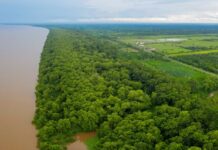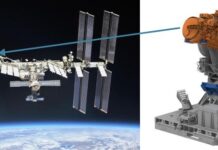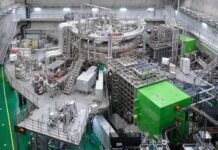
A scientific exploration team has arrived at a candidate site for a new Antarctic inland research base, securing a crucial inland route for research and material supply in and around the South Pole. Shown is the team on Dec. 31 posing for photos after arriving at the site. (Korea Polar Research Institute)
By Wu Jinhua
The Korea Polar Research Institute (KOPRI) on Jan. 2 said its exploration team arrived at a candidate site for an Antarctic research base, thus pioneering a “K-route” for the region in and around the South Pole.
The new land route was what the team pioneered for research and material supply activities in Antarctica. The First Basic Plan for Promotion of Polar Activities (2023-27) of the Ministry of Oceans and Fisheries stipulates the construction of an inland research base in the region by 2032, given the essential securing of an inland route to resolve issues from materials supply by air.
KOPRI said the team, which was led by chief Jun Seong Joon, arrived on Dec. 31 at their final destination of the candidate site after a 46-day exploration that began on Nov. 16 from the Jangbogo Antarctic research station.
The site is located at 76 degrees 11 minutes north latitude and 115 degrees 36 minutes east longitude. The thickness of a glacier there is at least 3.2 km, which allows restoration of climate more than a million years ago. Since the lowest temperature there is below minus 80 degrees Celsius, this place is also considered promising for conducting research on exploratory technology under conditions of extreme cold such as in space.
Thanks to the newly found path, the country has secured a 1,512-km land route that connects the Jangbogo station and the candidate site. The combined length of the routes is an expected 2,200 km including a new one of 270 km that the team plans to explore on its return and another scientific one spanning 433 km developed for research purposes.
Korea is now just the seventh country to have an inland route to the Antarctic region after the U.S., China, Japan, Russia, France and Italy.
“The pioneering of the ‘K-route’ has opened the door to researching the Antarctic region that had been the domain of just a few advanced countries,” KOPRI President Shin Hyoung Chul said. “The new route will be used to preemptively secure a promising research base with high potential for future development, compete with advanced countries in Antarctic research and raise the Republic of Korea’s capacity in such research.”
jane0614@korea.kr























